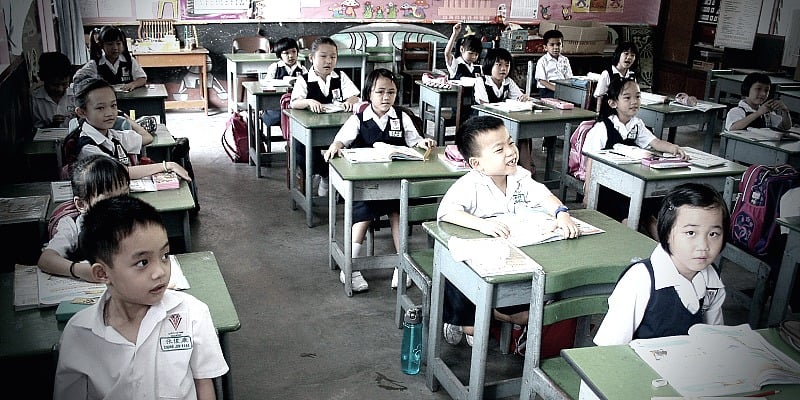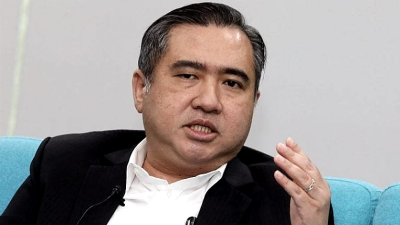We don’t find it essential to alter a child’s normal learning process just because we want them to skip a year of primary school education!
Due to the negative impact from the coronavirus pandemic, then senior education minister Mohd Radzi Md Jidin announced in April 2020 that the UPSR and PT3 examinations for that year would be canceled.
Mohd Radzi announced again in late April the following year that UPSR would be permanently abolished from 2021, to be replaced by PBS (Pentaksiran Berasaskan Sekolah or school-based assessment), marking UPSR officially a historical event in the country’s education system.
No doubt, Malaysia and Singapore are two countries in the world most obsessed with “regular examinations” as a means of evaluating the learning progress for Year 6 students.
In China, only private middle schools and certain government schools require a pass in their own entry examinations, while most primary school graduates will be admitted to secondary schools nearest to them without having to sit for additional entry examinations.
But in Singapore, all primary school students in the city-state will need to pass their PSLE (Primary School Leaving Examination) to decide which secondary schools they will go to. And it seems like Singaporeans are highly accustomed to the country’s education system which determines a student’s future based on the results of an examination taken at a very young age of 12.
Over here in Malaysia, we seem to be delighted at the idea of permanently abolishing UPSR exam from 2021, mainly because the vast disparity in the availability of educational resources in urban and rural areas as well as families on different ends of the wealth spectrum makes it unfair to determine a child’s future with an exam taken at such a young age, which may have a bearing on the child’s psychological health.
Abolishing UPSR is seen as a positive move but parents overly concerned about their children’s education are beginning to chart their own plans for their children’s future after Year 5.
Many have since transferred their children to international schools immediately after completing their Year 5 education. Of course, this happens mainly in urban and relatively well-to-do families.
In a recent random survey conducted by Sin Chew Daily among Chinese primary school directors and PTA representatives in Klang Valley, Penang and Johor Bahru, it was discovered that indeed some of the parents have made their children sit for entry exams half-way through their Year 5, to prepare them for Year 7 at an international school so that their children will get to skip Year 6.
The survey showed that out of 963 students at SJK (C) Lai Meng in KL last year, as many as 128 students or 13.3% of the school’s total student population were transferred to international schools after Year 5, while 48 students from SRJK (C) Puay Chai were transferred, up from a mere eight a year earlier.
The above are only the numbers of transfers for two SJKCs in Klang Valley. What about the ratio for almost half a million students at all of the country’s 1,302 SJKCs?
While the samples are by no means representative of the bigger picture and it is not easy for us to visit all the schools in the country, we have to believe that the “school transfer” phenomenon does exist, but probably only within specific areas or communities.

We feel that the transfer to international schools straight after Year 5 is “not wholly related to” the abolition of UPSR, and that it will not become a universal phenomenon for Chinese primary school students to transfer to international schools before they finish their 6-year primary school education.
This is because not all parents can afford to register their children at international schools, nor will an international school education change a student’s future categorically.
Nonetheless, some of the problems that may derive from such a shift warrants some serious consideration on our part.
Firstly, the issue of transition. Will a Year 5 student with a year short of primary school education be able to catch up with Year 7 curriculum at an international school? But since there’s the entry exam and the fact that families with deep pockets are more ready to invest heavily in their children’s education, transition should not be too much of a problem after all.
Secondly, impact on independent Chinese high school’s recruitment: Government high schools and independent Chinese high schools used to be the predominant options for SJKC graduates in the past. However in more recent years, the increasing number of international schools has provided a viable alternative, especially for more affluent families.
There were a total of 209 international schools across the country last year, a whopping jump from only 70 a decade earlier.
In the meantime, there has been little change in the number of new students at independent Chinese high schools during the same period of time. The menace of these schools’ recruitment drive has been the dwindling population of young Chinese Malaysians, not the mushrooming of international schools.
Dong Zong president Tan Tai Kim says the number of first-year independent high school students last year stood at 14,568, representing a 44.38% jump from 2003.
Thirdly, the quality of international schools: We are not in a position to pass our comments on the quality of the country’s international schools. That said, there is an essential difference between the quality of international schools we now have and a handful of of them existent during the earlier years in KL.
In the past, international schools used to source their students mainly from expatriate families for the ease of connectivity when the parents, who are MNC professionals posted here, are transferred to another country.
As for the 209 international schools we have today, it is best for the parents to prudently evaluate the situation before registering their children.
Fourthly, the students’ future prospects: Independent high schools, government schools or international schools have all done pretty well in educating the students.
So, a few more years of international school education will not give a student any definite advantage in the future. So long as the student has laid a solid foundation in secondary school, he or she should not worry about further education after high school, given the vast number of universities available here and abroad.
As we live longer and longer, the “half-life” of knowledge is becoming shorter and shorter. Learning should be a lifelong endeavor and only “lifelong learning” will immunize us from being washed out by the time and tide of our rapidly-evolving world.
We don’t find it essential to alter a child’s normal learning process just because we want them to skip a year of primary school education!
ADVERTISEMENT
ADVERTISEMENT








































